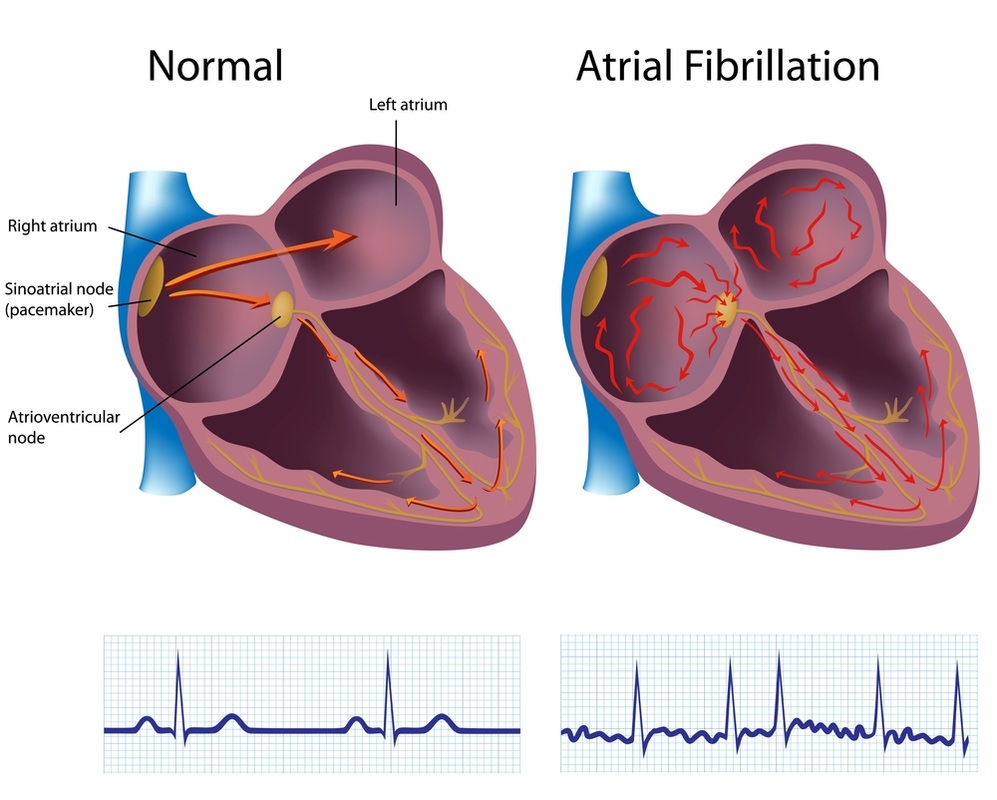
Atrial fibrillation is an abnormal heart rhythm which is extremely common. Around 1 in 4 people will be affected by atrial fibrillation at some stage of their life. Occasionally atrial fibrillation is a sign of an underlying heart valve or heart muscle problem but it often affects people whose hearts are otherwise normal.
Atrial fibrillation involves a disorganised rhythm in the top 2 chambers of the heart. These chambers are called the right and left atrium (from the Latin word meaning hallway) and these chambers channel blood into the ventricles, which are the main pumping chambers of the heart. During atrial fibrillation, the blood does not flow normally through the heart and stagnation of blood can lead to clots. These blood clots can travel around the body, causing strokes and other problems. The risk of stroke in patients with atrial fibrillation needs careful assessment, leading to a decision on anticoagulation (blood thinning drugs). (Link)
(1) lifestyle factors including weight loss, modification of alcohol and caffeine intake
(2) safety - stroke prevention with anticoagulant drugs
(3) symptom control with medication / ablation / pacemakers etc
Your doctor should discuss these treatment options to enable you to work out what is best for you.
- What problems can Atrial Fibrillation cause?
Atrial fibrillation involves a disorganised rhythm in the top 2 chambers of the heart. These chambers are called the right and left atrium (from the Latin word meaning hallway) and these chambers channel blood into the ventricles, which are the main pumping chambers of the heart. During atrial fibrillation, the blood does not flow normally through the heart and stagnation of blood can lead to clots. These blood clots can travel around the body, causing strokes and other problems. The risk of stroke in patients with atrial fibrillation needs careful assessment, leading to a decision on anticoagulation (blood thinning drugs). (Link)
- Why have I got atrial fibrillation?
- What is the relationship between atrial fibrillation and exercise?
- What treatments are available for atrial fibrillation?
(1) lifestyle factors including weight loss, modification of alcohol and caffeine intake
(2) safety - stroke prevention with anticoagulant drugs
(3) symptom control with medication / ablation / pacemakers etc
Your doctor should discuss these treatment options to enable you to work out what is best for you.
